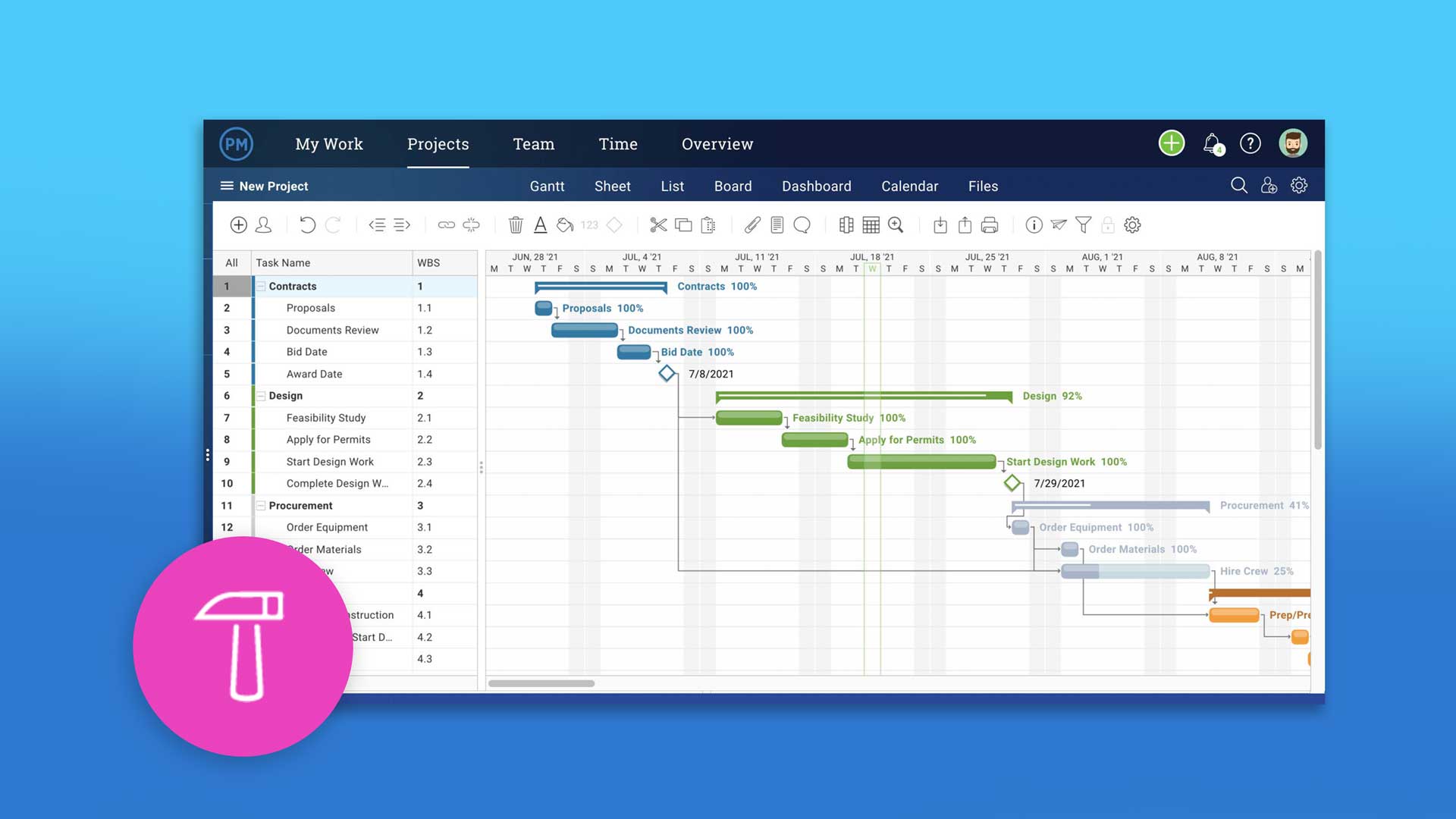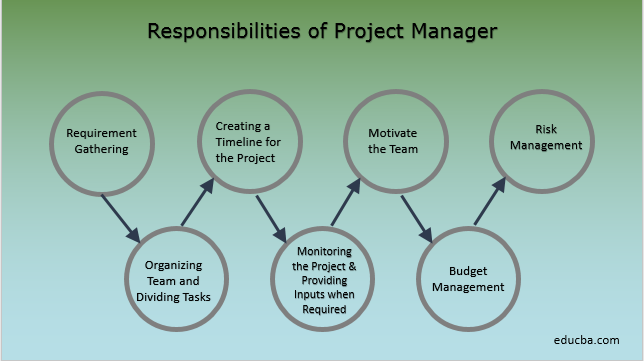
There are many things that you should consider when managing a podcast project. Podcasts must have the ability to keep listeners' attention for a time. Listeners may not implement your tips immediately, but once they see how practical they are, they will be a loyal audience. Your podcast will succeed if you follow these steps. These are some important things to remember. These tips are vital for podcast project managers.
Project Management Paradise
If you want to learn more about project management, you may want to listen to the podcast Project Management Paradise. This podcast features interviews of experts who have vast experience in the field. This podcast is an excellent resource for anyone who is new to the field but needs a refresher. You will find plenty of relevant information in the podcast. We'll be discussing what you should know to make your business a success in this episode.
PM for the Masses
You should listen to the podcast PM For the Masses if you are interested in learning more on project management. This podcast is for project managers or those interested in project management. It's great for those just starting in the job as well as those who are experienced. Each episode is packed with valuable information that will benefit project managers of every level. These episodes will enable you to develop the necessary skills to succeed.

PMI Projectified
The PMI's Projectified podcast features conversations with leading thinkers and practitioners in the field. Topics covered include digital transformation and artificial intelligence as well as career development and leadership. Guests include senior project managers, business leaders, and best-selling authors. Episodes are available for free on Apple Podcasts and Google Podcasts. You can also find out more about PMI's podcast on its website. Simply click the appropriate links to subscribe.
PMI's Project Management Insight
PMI's Project Management Insight Podcast provides project managers with valuable information. Interviews with leading researchers and best-selling authors as well as decision makers from Fortune 500 businesses are featured on this podcast. Listeners can also get insight and tips from fellow guests. You can also find tips and tricks to help you get more done in a shorter time so that you can spend more quality time with your loved ones.
Mark Phillipy's 5 Minutes Project Management Radio Podcast
5 Minutes Project Management Podcast gives project managers daily tips, tricks, advice, and other useful information. Mark Phillipy (a PMP) hosts the podcast. This podcast features interviews with top project managers. Thousands of listeners all over the world download this podcast each day. Project managers looking to improve their success rate should download this podcast.
Futureproof Your Career
Change your mindset to make your podcast career more sustainable. We all know that technology is evolving at an alarming rate, and jobs are changing as well. This is why it is so important to accept change and learn new ways of working. It will help you be more employable in future. The following tips can help you prepare for these changes and ensure your career is relevant and exciting. These tips should prove useful to you.

PDU Podcast
If you're interested in continuing education, a podcast on project management might be the perfect fit. These podcasts provide a variety of topics that are related to project management, and can help earn your PDUs. These podcasts are great for anyone looking to earn a PM certificate. In addition to the podcasts, they offer webinars and worksheets to help you learn more. This makes them a convenient and affordable option. The podcasts are available through PDU.com and can be listened to on mobile devices.
FAQ
What is the role of a manager in a company?
Managers' roles vary from industry to industry.
A manager is generally responsible for overseeing the day to day operations of a company.
He/she ensures the company meets its financial commitments and produces goods/services that customers demand.
He/she makes sure that employees adhere to the rules and regulations as well as quality standards.
He/she plans new products and services and oversees marketing campaigns.
What is Kaizen?
Kaizen refers to a Japanese term that stands for "continuous improvements." It is a philosophy which encourages employees in continuously improving their work environment.
Kaizen is based upon the belief that each person should be capable of doing his or her job well.
Why does it sometimes seem so difficult to make good business decisions?
Complex systems and many moving parts make up businesses. The people who run them must juggle multiple priorities at once while also dealing with uncertainty and complexity.
It is important to understand the effects of these factors on the system in order to make informed decisions.
To do this, you must think carefully about what each part of the system does and why. It's important to also consider how they interact with each other.
It is also worth asking yourself if you have any unspoken assumptions about how you have been doing things. If so, it might be worth reexamining them.
Try asking for help from another person if you're still stuck. You might find their perspective is different from yours and they may have insight that can help you find the solution.
What are the main four functions of management
Management is responsible in planning, organizing and directing people and resources. It includes creating policies and procedures, as well setting goals.
Management helps an organization achieve its objectives by providing direction, coordination, control, leadership, motivation, supervision, training, and evaluation.
These are the four major functions of management:
Planning - Planning refers to deciding what is needed.
Organizing is the act of deciding how things should go.
Directing - Directing means getting people to follow instructions.
Controlling - This is the ability to control people and ensure that they do their jobs according to plan.
What are the top management skills?
No matter if they are running a local business or an international one, management skills are vital. They are the ability to manage people and finances, space, money, and other factors.
Managerial skills are required when setting goals and objectives and planning strategies, leading employees, motivating them, solving problems, creating policies, procedures, or managing change.
You can see that there are many managerial duties.
What are some common mistakes managers make when managing people?
Sometimes managers make their job harder than they need to.
They may not delegate enough responsibilities and not provide sufficient support.
Additionally, many managers lack communication skills that are necessary to motivate and direct their teams.
Managers set unrealistic expectations and make it difficult for their team.
Managers may choose to solve every problem all by themselves, instead of delegating to others.
Statistics
- 100% of the courses are offered online, and no campus visits are required — a big time-saver for you. (online.uc.edu)
- Hire the top business lawyers and save up to 60% on legal fees (upcounsel.com)
- UpCounsel accepts only the top 5 percent of lawyers on its site. (upcounsel.com)
- Our program is 100% engineered for your success. (online.uc.edu)
- The average salary for financial advisors in 2021 is around $60,000 per year, with the top 10% of the profession making more than $111,000 per year. (wgu.edu)
External Links
How To
How can you implement a Quality Management Plan?
Quality Management Plan (QMP), which was introduced in ISO 9001:2008, provides a systematic approach to improving processes, products, and services through continual improvement. It provides a systematic approach to improving processes, products and customer satisfaction by continuously measuring, analysing, controlling, controlling, and improving them.
QMP stands for Quality Management Process. It is used to guarantee good business performance. QMP helps improve production, service delivery and customer relationships. QMPs must include all three elements - Products, Services, and Processes. If the QMP only covers one aspect, it's called a "Process QMP". The QMP that focuses on a Product/Service is called a "Product." QMP. QMP is also used to refer to QMPs that focus on customer relations.
Two main elements are required for the implementation of a QMP. They are Scope and Strategy. They are defined as follows:
Scope: This defines what the QMP will cover and its duration. For example, if your organization wants to implement a QMP for six months, this scope will define the activities performed during the first six months.
Strategy: This describes the steps taken towards achieving the goals set forth in the scope.
A typical QMP has five phases: Planning (Design, Development), Implementation (Implementation), and Maintenance. Here are the details for each phase.
Planning: This stage identifies and prioritizes the QMP's objectives. To understand the expectations and requirements of all stakeholders, the project is consulted. Once the objectives and priorities have been identified, it is time to plan the strategy to achieve them.
Design: In this stage, the design team designs the vision and mission, strategies, as well as the tactics that will be required to successfully implement the QMP. These strategies are executed by creating detailed plans.
Development: Here, the team develops the resources and capabilities that will support the successful implementation.
Implementation: This involves the actual implementation of the QMP using the planned strategies.
Maintenance: This is an ongoing procedure to keep the QMP in good condition over time.
Additional items must be included in QMP.
Stakeholder Engagement: It is crucial for the QMP to be a success. They are required to actively participate in the planning, design and development of the QMP, as well as the implementation and maintenance phases.
Project Initiation. It is important to understand the problem and the solution in order to initiate any project. The initiator must know the reason they are doing something and the expected outcome.
Time frame: The QMP's timeframe is critical. If you plan to implement the QMP for a short period, you can start with a simple version. If you are looking for a longer-term commitment, however, you might need more complex versions.
Cost Estimation is another important aspect of the QMP. You can't plan without knowing how much money it will cost. Before you start the QMP, it is important to estimate your costs.
The most important thing about a QMP is that it is not just a document but also a living document. It changes as the company grows. It should therefore be reviewed frequently to ensure that the organization's needs are met.